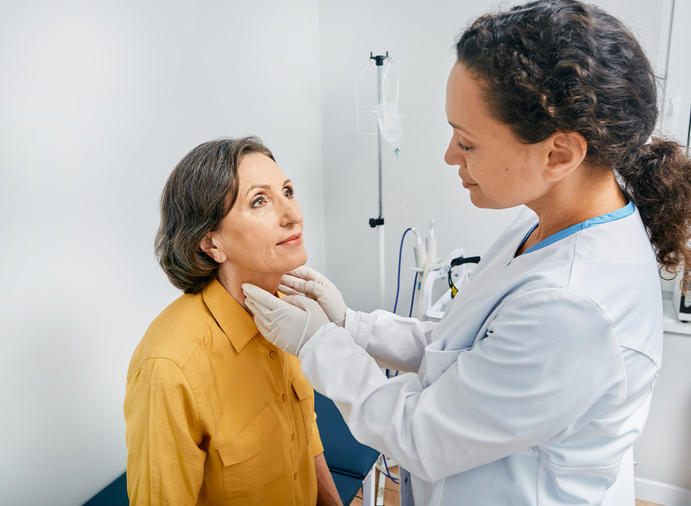What You Need To Know About Menopause Fatigue
Everyone seems to be tired at the moment, and there are good reasons for it, but is it worse at menopause?

Menopause can happen in your 40s or 50s but it’s different for each woman. When you experience menopause, you’re likely to have a variety of physical symptoms such as hot flushes, emotional ups and downs, low energy, and extreme tiredness, also known as fatigue.
There are many effective treatments available, from lifestyle adjustments to hormone balance, but just what is it?
Is this normal?
It’s normal for everyone to feel overtired or overworked from time to time. Such instances usually come and go and people are usually able to recover well.
Unfortunately the last few years have been extremely stressful for everyone globally, dealing with the pandemic and the aftermath has raised normal stress levels to a point where it is a rare person who is not feeling exhausted.
Stress will impact every single one of your bodily functions, and your hormones are absolutely no exception and at menopause this is a significant factor.
Stress will impact every single one of your bodily functions, and your hormones are absolutely no exception and at menopause this is a significant factor.
Unrelenting exhaustion such as we have been experiencing lasts longer, is more severe, and isn’t cured with rest. It’s a feeling of constantly feeling drained, zapping your energy and motivation, and causing issues with concentration and your overall quality of life.
Fatigue at this level impacts your emotional and psychological well-being, too.
Causes of menopause fatigue
Many women experience symptoms like these while they’re going through menopause and the various symptoms associated with it are a real factor.
Primarily the lack of sleep and constant battle to get symptoms under control are the main things women are focusing on, so feeling fatigued does not seem to register so much.
As a woman nears menopause, her hormone levels fluctuate dramatically, which causes the brain to wake up at all hours of the night. Also, lower levels of progesterone make some women short-tempered and less able to relax.
Hormones like progesterone and oestrogen are also known to help protect women from a condition called sleep apnoea – a potentially serious sleep disorder in which breathing repeatedly stops and starts.
If you have sleep apnoea, oxygen deprivation may cause you to awaken several times during the night.
When women go through menopause, they no longer produce progesterone which means they’re no longer as naturally protected from this sleep disorder, ultimately putting them more at risk.
But hormones aren’t the only thing that will keep women up at night. Other symptoms of menopause like hot flushes and night sweats are also likely culprits of poor sleep.
There are changes in the brain that lead to hot flushes, and those changes — not just the feeling of heat — can also be what triggers the body to wake up while you’re trying to sleep.
Even women who don’t report having sleep disturbances from hot flushes often say that they have more trouble sleeping than they did before menopause.
In short, the more uncomfortable you are, the more likely you’ll wake up throughout the night, often more than once.
How to manage your fatigue
Menopause fatigue is real but you can help relieve some of the symptoms by trying different things such as:
Increase soy-rich foods as foods high in soy are full of a chemical that gives you the same benefits that oestrogen has on your body. This can help even out some of the hormones.
Avoid spicy food as it is notorious for triggering hot flushes — avoid it if you can.
Dress appropriately to stay cool, wear loose lightweight clothing and keep bedding to a minimum too. When you go to bed, wear lightweight clothing to help keep you cool in case a hot flush comes on.
Exercise may seem counterintuitive, but is known to help with raising energy, and what is important is that you pick a form of exercise that is enjoyable and that you will continue such as swimming, gardening, walking, dancing – the choice is yours.
Natural help
Looking for a non medical solution to your symptoms means exploring alternatives and these are used by many women to control and reduce hormonal signs.
Bioidentical hormones can help with sleep, hot flushes and other symptoms: either progesterone alone or a combination of progesterone and oestrogen if symptoms are severe.
Alternative therapies such as acupuncture, reflexology, yoga and meditation have helped improve sleep and overall wellbeing. Anything that helps reduce your stress levels will also help reduce the severity of your symptoms so look at how best to help yourself to do that.
Nutrition can also play a key role in dealing with fatigue. It is a fact that your diet is crucial as there are so many things that will actually drain your energy and others that will substantially improve it.
If you want to avoid the worse offenders for energy drain avoid or reduce sugary foods, including syrup and honey, white bread, high caffeine drinks and processed foods like cakes, biscuits and ready meals.
Helpful information:
There can be so many causes of fatigue so you might have to be a bit of a detective to find out what it is that is most affecting you.
Menopause is certainly one factor, stress another major one, but there can be others and if you would like an energy boost you may find this article will help with that.
https://anna.blog.wellsprings-health.com/seven-energy-secrets-you-need-to-know/


















